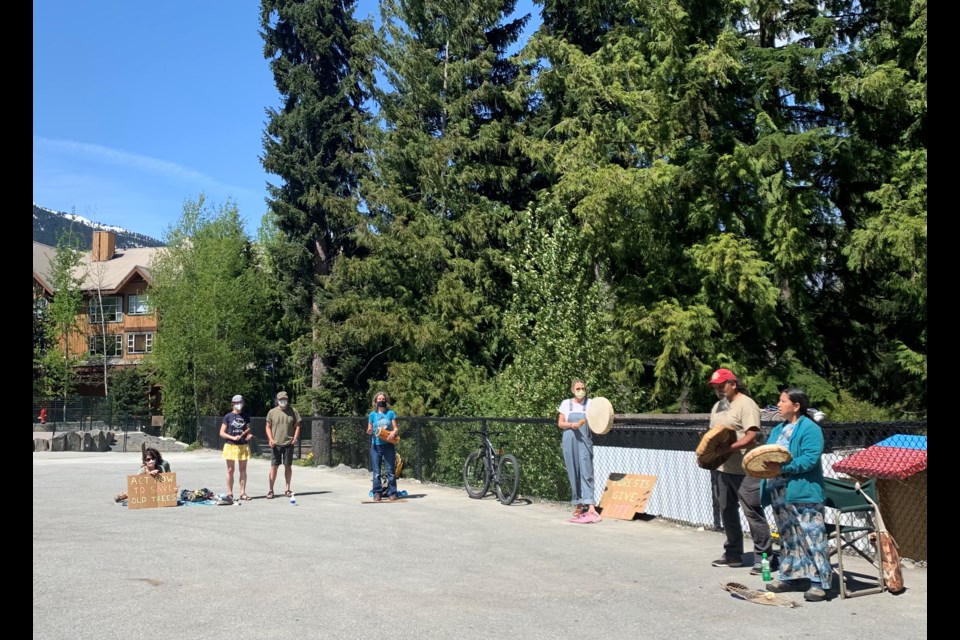A group of nearly 30 locals gathered in Whistler Olympic Plaza at noon on Sunday, May 16 to protest against the removal of old-growth forest in Whistler.
Armed with drums and signs reading "act now to save the trees," "worth more standing" and "forests give life," among other phrases, the purpose of the physically-distanced gathering was to give a voice to the longstanding cedars and other trees that are "being silently extinguished" in Whistler's Cheakamus Community Forest (CCF), organizers explained in the event's Facebook group.
"We’re talking about these old-growth forests and it’s really important that we stand up for them … They are priceless and should not be touched," Tina Pashumati James, who organized the demonstration, told the group.
"We can do better; we should do better.”
The local demonstration comes following a series of high-profile rallies across British Columbia in recent months, held to protest the logging of the province's old-growth forests.
As it relates to the CCF, between 30 and 55 per cent of old growth is currently protected, said board chair Jeff Fisher at a virtual open house on March 29— a fact Pashumati James disputed during Sunday's demonstration.
"We’ve since found out that it’s actually 25 per cent," she claimed. "Once they’re cut down, then nothing can be done about this."
Pashumati James reminded those gathered about the range of critical services old-growth forests provide, from air and water regulation to wildlife habitats to important and medically-beneficial fungi, and asked attendees to state why they believe old-growth forests are important to our community in writing.
“When the community forest was created, the idea was to reduce the logging, do a better job, go to an ecosystem based management … [and] give more weight to tourism, recreation, biodiversity, but still to harvest some timber,” Fisher said at the March open house, adding that the CCF currently harvests some of its timber from old growth, and some from second growth.
“We are on a program to shift out of the old growth, but it’s a question of is it going to take 30 years, 20 years, 10 years or five years, and we are still examining options to change our harvest planning that way.”
Last year, the main harvesting that took place within the CCF was done as part of the ongoing wildfire fuel-management project on Cheakamus Lake Road.
In attendance at Whistler Olympic Plaza on Sunday were Clara John and Barry Dan, members of the Lil'wat First Nation, who led the group in a series of traditional songs to show their collective appreciation for Mother Nature.
John thanked those who showed up to join her in fighting for the environment.
"I’m glad to see you all here today and that you are supporting us and what’s around us," she said. "As you know, with all of the incidents that happen around the world, Mother Creator, Mother Earth, she has a little hiccup and everything goes crazy … Everybody is turning back toward nature, so why are they trying to take it away?
"If they’re going to take it away, then replace it; re-grow it. But it’s going to take our lifetime … to rebuild it," she continued. "It’s going to take a long time; a lot of years, so we need to protect what we have. If Mother Nature decides we’re not doing our job right, then that’s where all the hiccups come in.”
- With files from Braden Dupuis






